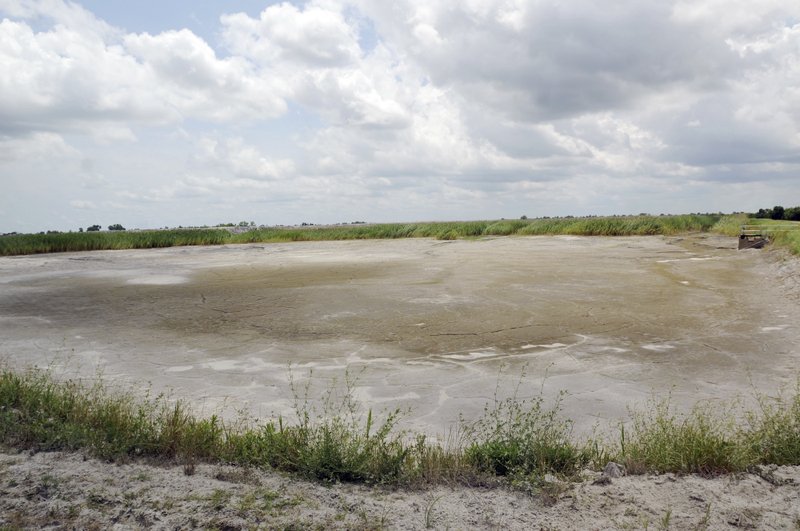Duke Energy has until 2019 to shut down four high-risk sites across North Carolina and 2029 to close all of the ash basins, according to the Coal Ash Management Act passed in 2014 by the state legislature.
Duke itself admits this is an ambitious deadline but continues to reiterate the nation’s largest energy company is prepared to meet each benchmark.
As part of the closure process, the North Carolina Department of Environmental Quality issued a permit to Duke Energy in mid-February to allow for Duke to discharge wastewater from the utility’s Riverbend Steam Station in Gaston County into the Catawba River.
The permit does contain protections that Southern Environmental Law Center senior attorney Frank Holleman says were included after citizen input.
“Local conservation groups, in the Charlotte area, had to fight to get this dangerous site overlooking Charlotte’s drinking water reservoir cleaned up,” Holleman says. “Duke and the state agency fought a cleanup. But, in the aftermath of the Dan River spill, Duke agreed to clean this site up.
“And, in fact, later pleaded guilty to committing a crime there for the way it stored its coal ash.”
Duke Energy spokesperson Catherine Butler says that this permit allows Duke to go forward “dewatering” the ash basin at Riverbend. Butler says this permit was initially requested by Duke more than 18 months ago.
“And in addition to the permit, we will also be installing a water treatment system at the site to treat the water that is mixed with the ash,” Butler says, “before it is turned to Mountain Island Lake, which is the lake near the Riverbend Steam Station.”
Holleman says this discharge has the highest restrictions of any discharge into the river.
“Because Duke stored coal ash in this way – and because the state agency, DEQ, allowed them to – this egg has got to be unscrambled in order for the site to be cleaned up,” Holleman says.
Butler says Duke has been able to continue working to remove the dry ash that is sitting in ash stacks on the site while awaiting the permit to remove the water from the ash lagoons.
“We recently began moving ash by rail from Riverbend to a lined, structural fill project at the Brickhaven mine site, which is located in central North Carolina,” Butler says. The Brickhaven site is located in Chatham County.
Butler says that work has been underway since May of 2015 and that moving the ash by train increases the amount of ash that can be moved.
“One train moves about the same amount of ash as 420 trucks,” Butler says. “That’s a big difference.”
But if every permit takes 18 months to be vetted and cleared, that will clearly impact the initial 2019 deadline.
“In order to be able to excavate all of the ash and meet the aggressive deadlines that are outlined in the state law, it is very important that we have these permits to move forward with our work and remove the water from the basins and excavate the ash and move it to lined solutions,” Butler says. “This is a check in the box. But, again, it has been through many changes over the past year and a half – and even since the public comment period.”
Holleman says that the burden falls to DEQ to put the proper restrictions in place from the beginning rather than waiting for public outcry to strengthen the permits.
“If we could get our state agency shaped up to do the job right to start with, we wouldn’t have any delays,” Holleman says. “But the important thing is we’ve got to make sure we do this right, and we get the coal ash cleaned up in a way that will protect not only us today but future generations, also.”
Holleman says that if the permitting process went quicker, he takes Duke at its word that the utility can meet the aggressive deadlines.
“I grew up near Clemson University, in South Carolina, and I saw in the ‘60s and ‘70s, what was then Duke Power – before we had sophisticated computers and technology – cut the trees off of thousands of acres, build several huge dams and construct a major nuclear plant and two huge reservoirs in just a few years,” Holleman remembers. “And when Duke Energy and its engineers put their mind to doing something, they can get it accomplished.”
Meanwhile, Governor Pat McCrory, who worked for Duke Energy for nearly three decades before being elected governor, shut down the Coal Ash Management Commission earlier this month, after the state Supreme Court ruled the composition of the group was illegal. The group was established by lawmakers to monitor the cleanup of the unlined ash basins in North Carolina. WRAL is reporting that work will now shift to the Department of Environmental Quality.


